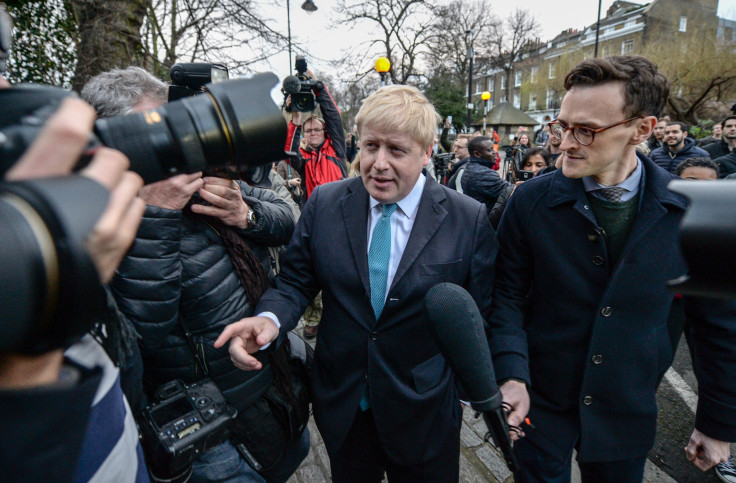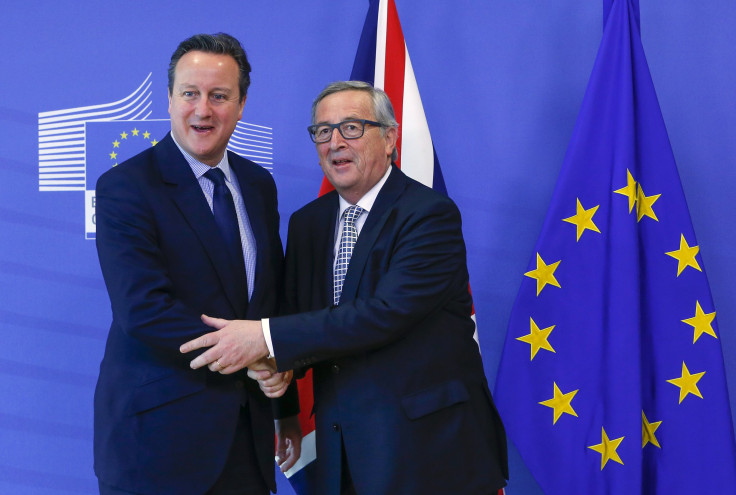EU Brexit 2016 Controversy: Amid IPSOS Polls, Experts Warn Of Security And Financial Risks Of Referendum Vote

London Mayor Boris Johnson announced Sunday he would campaign for the United Kingdom to leave the European Union in the upcoming Brexit referendum. Johnson’s comments came as Prime Minister David Cameron has increasingly favored negotiation with the EU over an outright exit, and experts in the financial and security sectors discussed the pros and cons of both sides of the Brexit question.
“I want a better deal for the people of this country, to save them money and to take back control," Johnson said. The London mayor praised Cameron’s work in negotiations with the EU while saying he didn’t think the new deal would represent “fundamental reform of the EU or of Britain’s relationship with the EU.”
Johnson will have a significant influence on the British public, a poll published Sunday by the Guardian indicated. Nearly a third, or 32 percent of voters who responded to the Ipsos Mori poll said Johnson’s opinion on the referendum would be an important factor in their voting decision. Around 44 percent of people said Cameron would factor into their Brexit choice.

Two of the top issues concerning the Brexit are whether the U.K. would be safer from terrorism and other homeland threats, and whether the economy would grow stronger or weaker outside the EU. One British politician who has been campaigning to leave the EU, Work and Pensions Secretary Iain Duncan Smith, told the BBC staying would expose the U.K. to terror attacks such as the massacre carried out in Paris in November by Islamic extremists that left 130 dead.
“The lack of any control on our borders is a critical issue,” Smith said. Despite being part of the EU, the U.K. is not part of the Schengen agreement that allows for freedom of travel across 26 countries in Europe without visa or passport checks. As a country outside of Schengen, everyone who enters the U.K. needs to pass through more stringent border security than in most of continental Europe.
Advocates on both sides of the referendum have debated the future of the U.K.’s robust economy, with pro-EU activists saying the country’s strength comes in part from its membership in the EU, and anti-EU campaigners arguing the EU is holding the economy back with its trade restrictions and the high cost of membership.
The economic debate already has produced financial uncertainty, particularly for foreign bond-buyers, the Financial Times reported. “Investors globally, in Asia, Europe and the U.S., are all over this topic and want to understand what does it mean for the U.K. banks, and what does it mean for the broader European banking system,” said David Hague, a managing director for Nomura, the Japanese bank.
© Copyright IBTimes 2024. All rights reserved.






















